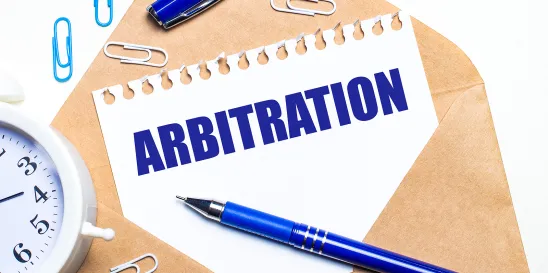Sometimes, once an arbitration award is issued, the losing party accepts its lumps and pays the award, promptly and in full. At times, however, it is not so simple. The losing party may consider that the award is unfair or wrongly decided, or it may simply refuse or be unable to pay. In such cases, each party has decisions to make. For the prevailing party, the question is where and how to attempt to turn the arbitration award into money.
The Federal Arbitration Act (the “FAA”)[1] consists of three chapters. Chapter 1, “General Provisions,” applies generally except where there is a conflict with a provision of one of the other applicable chapters. Chapter 2, “Convention on the Recognition and Enforcement of Foreign Arbitral Awards,” is the implementing legislation for the international treaty of the same name (also called the “New York Convention”), to which the United States is a party. Chapter 3, “Inter-American Convention on International Commercial Arbitration,” is the implementing legislation for that convention.
Chapter 1 of the FAA expressly defines “maritime transactions” to mean “charter parties, bills of lading of water carriers, agreements relating to wharfage, supplies, furnished vessels or repairs to vessels, collisions, or any other matters in foreign commerce which, if the subject of controversy, would be embraced within admiralty jurisdiction.” Section 2 of the FAA makes it applicable with respect to all maritime transactions, and this Section has been widely construed as preempting otherwise applicable state laws relating to enforcement and challenge of arbitration awards where the dispute involves a maritime transaction.
This is not the end of the analysis, however, because an arbitral agreement or award governed by Section 2 of the FAA also “falls under the Convention,” unless it arises out of a relationship which is “entirely between citizens of the United States,” except that even then, it will nevertheless fall under the Convention if the relationship between U.S. parties “involves property located abroad, envisages performance or enforcement abroad, or has some other reasonable relation with one or more foreign states.”
From these statutes, then, the courts have distinguished three categories of awards:
- a “domestic” award made in the United States between U.S. citizens, where the relationship does not involve property or performance abroad and has no reasonable relation with a foreign state;
- a “nondomestic” award, made in the United States but not falling within section 202’s carve-out for domestic awards; and
- a “foreign” award, meaning one made outside the United States.[2]
A domestic award may be subject to Chapter 1 of the FAA but will not fall under the New York Convention or Chapter 2 (or 3) of the FAA. Nondomestic awards and foreign awards, on the other hand, are subject to the New York Convention and thus are governed by Chapter 2 (or 3) of the FAA.
It is settled law that a court must have jurisdiction over the defendant or its property in order to entertain an application to recognize and enforce an arbitration award against that party. Broadly speaking a court will assess whether it has jurisdiction over a defendant based on the nature and extent of that party’s contacts with the forum. A court may exercise “general jurisdiction” over a defendant—that is, in respect of a claim that itself has no relationship to the forum or the defendant’s contacts with the forum—only in narrow circumstances, principally where the defendant is incorporated in the forum or maintains its principal place of business there.
Where, on the other hand, the claim somehow relates to the defendant’s contacts with the forum, a court may exercise “specific jurisdiction” in respect of such claim even where the defendant’s contacts with the forum are otherwise tenuous. Courts generally have found that a party’s agreement to arbitrate a dispute in a particular forum represents a submission to that court’s jurisdiction for purposes of enforcing or challenging the award.
A court may also exercise “quasi in rem” jurisdiction over a defendant’s property that may be “found” in the jurisdiction. In the context of maritime claims, this most commonly arises in the context of a maritime attachment pursuant to Rule B of the Supplemental Rules for Admiralty and Maritime Claims. Thus, for instance, it is common for a party seeking to enforce an arbitration award to obtain jurisdiction in a district by attaching property of the defendant that may be found there, such as a vessel, a bank account, or a debt or other obligation owing to the defendant by a party located in the jurisdiction.
A second question is whether the action may be brought in a federal district court or whether it may only be brought in state court. This question arises because the federal courts are courts of “limited” jurisdiction, meaning that the court must have “subject matter” jurisdiction to entertain a suit. The three potentially applicable bases for federal jurisdiction here are “federal question,” “admiralty and maritime,” and “diversity of citizenship.”
One might be forgiven for assuming that a claim to enforce an arbitration award pursuant to the Federal Arbitration Act constitutes a “federal question” for purposes of assessing the federal court’s subject matter jurisdiction, but the courts have uniformly found otherwise. On the other hand, enforcement of an award governed by the New York Convention—a U.S. treaty obligation—is a “federal question,” and therefore all actions concerning an award governed by the Convention may be brought in the federal courts. Indeed, Section 203 expressly provides that “[a]n action or proceeding falling under the Convention shall be deemed to arise under the laws and treaties of the United States,” and it further provides that the district courts shall have original jurisdiction over such actions and proceedings.
So, it sometimes is the case that an action to enforce a domestic award under Chapter 1 of the FAA can only be brought in state court, unless there is an alternative basis for federal subject matter jurisdiction. In Badgerow v. Walters,[3] the Supreme Court recently held that in an action under Section 9 or 10 of the FAA to vacate or enforce an arbitral award, the court may not “look through” the award to determine whether there was subject matter jurisdiction in respect of the underlying dispute. Thus, for instance, it is of no moment that the underlying arbitration arose under a maritime contract; the award is just an arbitral award like any other, and the action to enforce it is not “maritime” for purposes of subject matter jurisdiction under the FAA. Consequently, in such case, unless there is “diversity of citizenship,” it will be difficult to establish jurisdiction in the federal courts for a claim arising solely under the FAA. That said, as noted above, this problem does not arise where the award is subject to the New York Convention, as many maritime arbitration awards are, so this issue may in practice be less of a problem than it may first appear.
Enforcement under the FAA is meant to be quite simple. Section 9 provides that where a party makes an application to confirm an award, “thereupon the court must grant such an order unless the award is vacated, modified, or corrected as prescribed in sections 10 and 11 of this title.” Any grounds for vacating, modifying, or correcting the award would need to be asserted by the respondent in answer to the petition. Importantly, apart from a very narrow exception for where the arbitrators showed manifest disregard of the law, the grounds for challenging enforcement of an award are entirely limited to issues of procedural defect or arbitrator misconduct or bias, and review of the factual and legal findings of the panel normally cannot be reconsidered by the court.
Similarly, where the New York Convention applies, Section 207 provides that “[t]he court shall confirm the award unless it finds one of the grounds for refusal or deferral of recognition or enforcement of the award specified in the said Convention.” The grounds for contesting enforcement under the New York Convention substantially overlap with the grounds for vacatur set out in Section 10 of the FAA, and often the distinction between Section 10 and Article V will not be significant. Nevertheless, in a case governed by the New York Convention, the Article V defenses are exclusive, and “courts have strictly applied the Article V defenses and generally view them narrowly.”[4] Thus, for instance, the defense of “manifest disregard of the law” is not available under the New York Convention.
Courts have held that the Convention does not need a party seeking enforcement of an award in a secondary jurisdiction to await the conclusion of all challenges to the award that may be pursued in the primary jurisdiction. Rather, “a court maintains discretion to enforce an arbitral award even when nullification proceedings are occurring in the country where the award was rendered.”[5]
Although the New York Convention confers federal subject matter jurisdiction over actions to enforce arbitral awards governed by the Convention, that subject matter jurisdiction does not automatically extend to actions to enforce the award against alleged alter egos of a party. Two exceptions to this general rule have been recognized: (1) where “the complaint specifies two grounds for subject matter jurisdiction so that the alter ego claim can be construed as a separate action … to enforce the arbitration award against nonparties,” and (2) where the alter ego claim would not unduly complicate the action of the court with respect to the arbitration award.
Conclusion
Arbitration can be a streamlined dispute resolution tool, but without the power to enforce an award the exercise can become one of futility. The United States has long shown a strong favor for the recognition and enforcement of arbitral awards, and the FAA and the New York Convention are powerful tools toward this end.
[1] 9 U.S.C. § 1 et seq.
[2]See CBF Industria de Gusa S/A v. AMCI Holdings, Inc., 850 F.3d 58 (2d Cir. 2017), for a detailed discussion concerning this distinction.
[3] 596 U.S. 1 (2022).
[4]Ario v. Underwriting Members of Syndicate 53 at Lloyds, 618 F.3d 277, 291 (3d Cir. 2010) (citing Admart AG v. Stephen & Mary Birch Found., 457 F.3d 302, 308 (3d Cir. 2006).
[5]Iraq Telecom Limited v. IBL Bank S.A.L., 597 F. Supp. 3d 657 (S.D.N.Y. 2022) (quoting Compania de Inversiones Mercantiles, S.A. v. Gruppo Cememtos de Chihuahua S.A.B., 970 F.3d 1269, 99 (10th Cir. 2020), cert. denied, 141 S.Ct. 2793 (2021).



 />i
/>i

